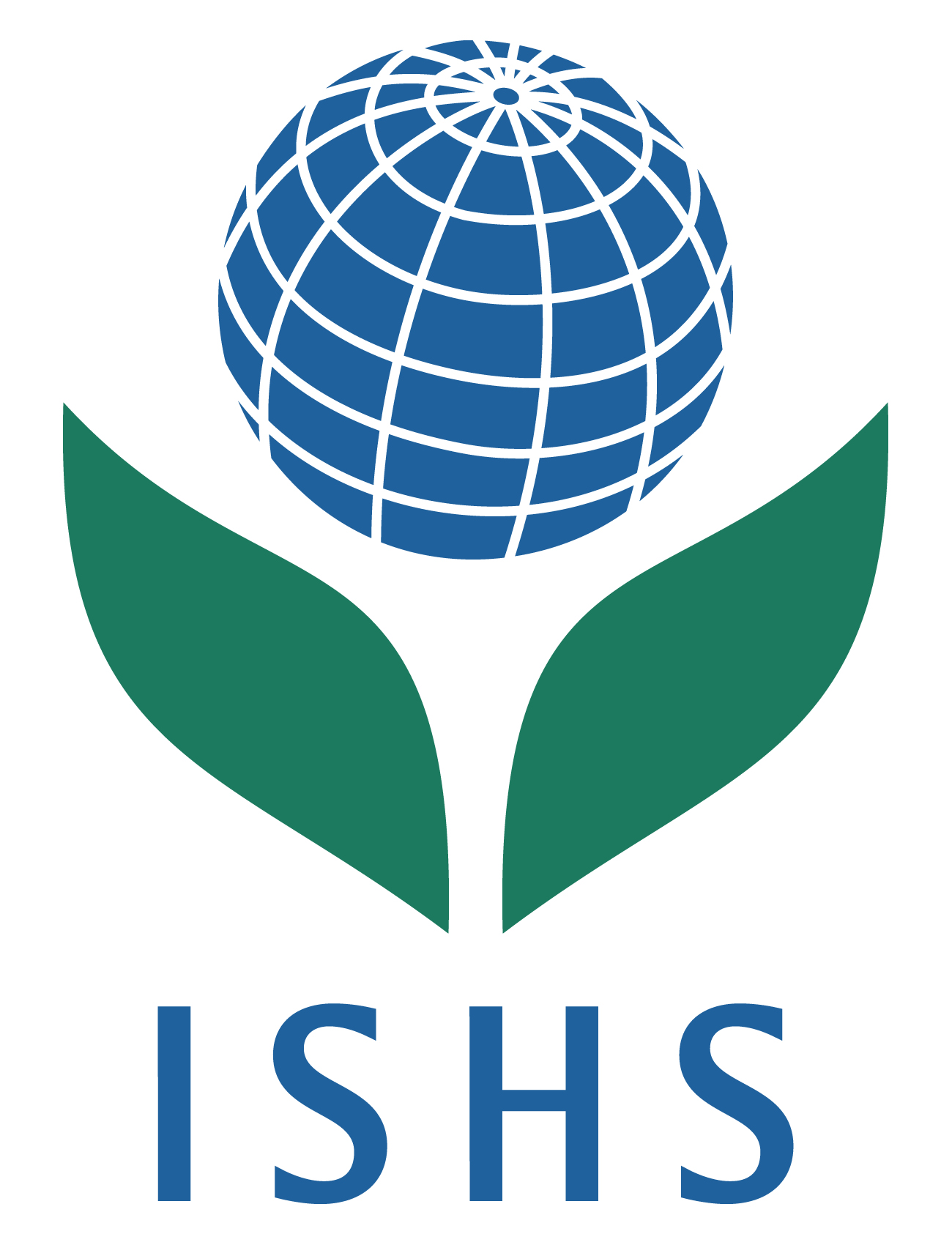Location
PO Box 500
3001 Leuven 1
Belgium
The International Society for Horticultural Science - in short ISHS – is a truly global network comprising over 53,000 individuals, universities, governments, institutions, libraries and commercial companies, thousands of whom joined as Individual Members, in addition to a substantial number of Institutional Members and some 50 Member Countries/Regions. It is a major source of up-to-date information on global horticultural research. ISHS aims to promote research in all branches of horticulture. It encourages the development of international co-operation, bringing together scientific and technical professionals to stimulate, facilitate and co-ordinate research and scientific activities on a global scale.
The aim of the ISHS is "...to promote and encourage research and education in all branches of horticultural science and to facilitate cooperation and knowledge transfer on a global scale through its symposia and congresses, publications and scientific structure." Membership is open to all interested researchers, educators, students and horticultural industry professionals.
Members:
Resources
Displaying 1 - 5 of 27Cashew nut production in Indian subcontinent with emphasis on carbon sequestration potential in a changing global climate scenario
India has a maximum area (21.6%) under cashew nut and is the third largest producer (17.3%) of raw nuts in the world. The country is the second largest exporter, accounting for 34% of the world’s export of cashew kernels having a comparative advantage in production and processing on account of its cheap and skilled labour force. The yields in India are poor at 860 kg/ha as compared to 4,125 kg/ha in Vietnam and 2,000 kg/ha in Nigeria.
Productivity and Efficiency Analysis of Pomegranate Production in Antalya Province of Turkey
This paper aims to conduct productivity and efficiency analyses for pomegranate production in the province of Antalya in Turkey. Data of the study were collected from the selected sample pomegranate farms, using questionnaires. The sample farms (75) were selected from population through a stratified random sampling method. Firstly, land, labour and total factor productivity indicators for pomegranate production were researched. Additionally, efficiency analyses were also done using data envelopment analysis method.
Conservation and IP protection of unique crop genetic resources and products of cashew
Protection and management of intellectual property rights over unique crop genetic resources, biodiversity, new cultivars in crops and unique products from crops attains significance in the back drops of globalisation and trade liberalisation. Members of WTO, including India are taking earnest efforts to protect the sovereign rights over crop genetic resources and biodiversity by enacting specific Acts. A deep knowledge about these Acts and their implications is essential for achieving their specific goals.
Propagation and reintroduction of two rare plant species in the South-Eastern United States of America
The habitats of Sarracenia rubra subsp. wherryi (Wherry’s pitcher plant) and Symphyotrichum georgianum (Georgia aster) have been declining as a result of human population growth, poor land management, invasive exotic species, and fire prevention. Through a partnership with the U.S. Forest Service and the Beattie Foundation measures have been taken to protect these species through a propagation and re-introduction program.
Innovative techniques to capture and re-use water for small scale nurseries in Washington State
The Washington State Department of Ecology (WSDE) has set very strict standards for utilization of both ground water and surface water. In the absence of a valid Water Right Permit rural landowners can only draw up to 5,000 gal per day from a well. In 2009, however, WSDE passed a new law stating that the landowners can capture rainwater (rain water harvesting) from their farm buildings and use it for irrigation purposes, without having to go through the elaborate process of applying for and possibly being denied a Water Right permit.


